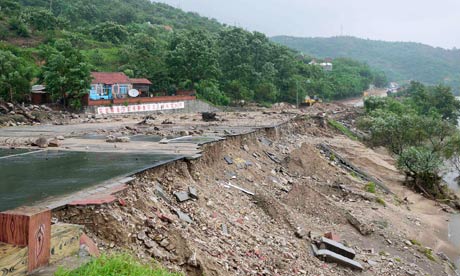
For all of the hubbub about
exploding growth in Latin America this year, the region remains a challenging place for knowledge companies to do business.
The uncertain legal climate faced by internet companies is highlighted in cases that
Yahoo! and Google are battling in Argentina. An Argentina entertainer, Virginia Da Cunha, sued Google because searches of her name turned up links to third-party pornography sites. Da Cunha had sued Google claiming that they were responsible for the third-party content that came up in Google's search results.
Naturally, Google feels they aren't - after all, Google simply indexes information on the web and displays it based on their search algorithms without any claim to police or monitor it preemptively. To do so would be a form of censorship. And because the internet is, well, the internet, it's also pretty impossible. Google and Yahoo! recently won an appeal overturning an original ruling that held them liable for controlling such content.
Yahoo!, also sued in the case, had a novel solution when faced with a similar lawsuit from Sports Illustrated swimsuit model
Yesica Toscanini: since they say it's impossible to filter out what Toscanini doesn't want her name associated with, they simply blocked virtually all results to searches and deliver a link to the judicial order.
In a sign of the challenges facing tech firms in the region, the
NY Times reports that "Google currently faces at least 600 lawsuits in Brazil."
As the Times rightly points out, this type of legal environment makes it very difficult for firms to innovate. The big guys have the cash to fight off every legal challenge - petty and legit - but small start-up firms (like Google, Yahoo! and Twitter were once) struggle to take risks and innovate in such an environment.
New firms are still sprouting up in the region, but as Sarah Lacey at TechCrunch chronicled
here and
here, the success stories tend to come from a very creative adaptation to the environment rather as a result of it (this despite the fact that in the 1990s Argentina ranked fifth in the world in registered web domains).
Another TechCrunch contributor, business professor Vivek Wadwa, recently pointed out that
emerging markets can take advantage of a legal loophole to re-purpose technology that's patented in the US and other Western countries but not emerging ones. That and moving towards "fair use" laws that make every news aggregator (from Huffington Post to Drudge to THIS SITE) possible could do wonders to making Latin America as open as it should be to fostering web-based businesses.
Online Sources: New York Times, Sports Illustrated, TechCrunch
 * Brazil: President Luiz Inacio Lula da Silva gave the green light for the construction of a massive hydroelectric dam in the Amazon region despite protests from some indigenous groups and environmentalists.
* Brazil: President Luiz Inacio Lula da Silva gave the green light for the construction of a massive hydroelectric dam in the Amazon region despite protests from some indigenous groups and environmentalists.
















